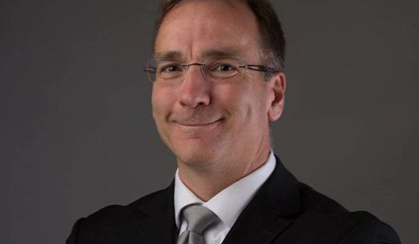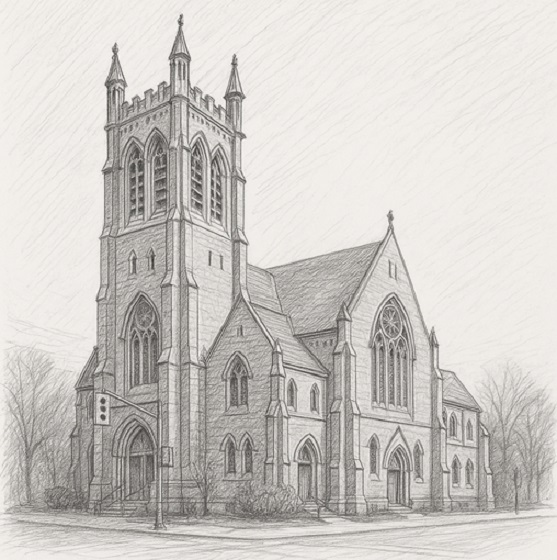Alberta
Red Deer South MLA challenging his own government to end restrictions for all family gatherings

Article submitted by Red Deer South MLA Jason Stephan
It’s time to let families get together again.
Families are the fundamental unit of our society. As we approach Family Day, we should consider what that means.
This week, I received and delivered written requests from 28 pastors and hundreds of members of their congregations to lift restrictions so families could celebrate Family Day together.
I agree. Our mental and emotional health requires in person love and kindness. Great healing can result simply from allowing immediate family members opportunities to serve and love each other in person, in ways they agree are appropriate for their family’s circumstances, nurturing their family’s resilience, their family’s individual and collective mental and emotional health.
When I was studying our constitution in law school, I learned that Section 2 of the Canadian Charter of Rights and Freedoms says that everyone has the “fundamental freedoms” of “association” and “peaceful assembly”.
The Supreme Court of Canada said that this freedom of association allows for the “achievement of individual potential through interpersonal relationships”.
What interpersonal relationship allows for more opportunities for “achievement of our potential”, individually or collectively, than in our families?
The freedom of peaceful – that is, not violent – assembly protects the “physical gathering of people”. What physical gatherings are more important than with our own families?
Belonging to, and gathering in, our families are not mere fundamental freedoms, they are also among the highest, most important, expressions of these freedoms.
This past Christmas we saw public health “measures” disallow immediate families – other than households – from gathering, both inside and then even outside. While families are now allowed to gather outside, with freezing winter temperatures, family gatherings continue to be starved. Many of our neighbors, and ourselves, have felt isolated and alone.
We also see families continue to be severely curtailed in gathering to console each other in funerals for loved ones with miserly, artificial limits on attendance, with frustrating contradictions, disregarding the size of spaces with much greater capacities to accommodate generous physical distancing for funeral services, equaling or exceeding those imposed at Walmart. This can result in pain.
The World Health Organization (WHO) defines health as “a state of complete physical, mental and social well-being and not merely the absence of disease or infirmity”.
The unfortunate irony is that public health measures can be unhealthy, resulting in familial disconnection, societal contention, and despair.
Government intrusions into our families’ fundamental freedoms can be very harmful. Under Section 1 of the Charter, government has the burden to justify imposing limits on these freedoms. In particular, government is required to demonstrate “proportionality” between its objectives and its limits imposed to achieve them – the cure cannot be worse than the disease.
This analysis also requires demonstration of a “rational connection” between the limit and the objective, and “minimal impairment” of no more than is necessary to accomplish the objective.
For example, while no child under 18 has died with/from COVID-19 in Alberta, many children – along with adults without serious health issues – are suffering profound economic, physical, social, mental and emotional health issues from health measures imposed upon them and their families.
If these individuals and families are at little or no risk from COVID-19, is there a rational connection to harmful health measures? Are there better opportunities for minimal impairment from less intrusive and harmful alternatives? It is healthier for our children, young adults and families to have hope for bright futures.
Government public health measures should – to the extent possible -leave families and their fundamental freedoms alone.
Societies and families are healthier and happier when they are free. A principled vision of hope is healthy, valuing freedom, requiring government to trust adults in positive ways, to govern themselves, allowing their families to carry on the activities of daily living in ways they individually deem fit appropriate to their own circumstances, in a good faith while respecting reasonable health measures and the rights of their neighbors to do the same.
Guest column from Jason Stephan, MLA for Red Deer-South
Alberta
Petition threatens independent school funding in Alberta

From the Fraser Institute
Recently, amid the backdrop of a teacher strike, an Alberta high school teacher began collecting signatures for a petition to end government funding of independent schools in the province. If she gets enough people to sign—10 per cent of the number of Albertans who voted in the last provincial election—Elections Alberta will consider launching a referendum about the issue.
In other words, the critical funding many Alberta families rely on for their children’s educational needs may be in jeopardy.
In Alberta, the provincial government partially funds independent schools and charter schools. The Alberta Teachers’ Association (ATA), whose members are currently on strike, opposes government funding of independent and charter schools.
But kids are not one-size-fits-all, and schools should reflect that reality, particularly in light of today’s increasing classroom complexity where different kids have different needs. Unlike government-run public schools, independent schools and charter schools have the flexibility to innovate and find creative ways to help students thrive.
And things aren’t going very well for all kids or teachers in government-run pubic school classrooms. According to the ATA, 93 per cent of teachers report encountering some form of aggression or violence at school, most often from students. Additionally, 85 per cent of unionized teachers face an increase in cognitive, social/emotional and behavioural issues in their classrooms. In 2020, one-quarter of students in Edmonton’s government-run public schools were just learning English, and immigration to Canada—and Alberta especially—has exploded since then. It’s not easy to teach a classroom of kids where a significant proportion do not speak English, many have learning disabilities or exceptional needs, and a few have severe behavioural problems.
Not surprisingly, demand for independent schools in Alberta is growing because many of these schools are designed for students with special needs, Autism, severe learning disabilities and ADHD. Some independent schools cater to students just learning English while others offer cultural focuses, expanded outdoor time, gifted learning and much more.
Which takes us back to the new petition—yet the latest attempt to defund independent schools in Alberta.
Wealthy families will always have school choice. But if the Alberta government wants low-income and middle-class kids to have the ability to access schools that fit them, too, it’s crucial to maintain—or better yet, increase—its support for independent and charter schools.
Consider a fictional Alberta family: the Millers. Their daughter, Lucy, is struggling at her local government-run public school. Her reading is below grade level and she’s being bullied. It’s affecting her self-esteem, her sleep and her overall wellbeing. The Millers pay their taxes. They don’t take vacations, they rent, and they haven’t upgraded their cars in many years. They can’t afford to pay full tuition for Lucy to attend an independent school that offers the approach to education she needs to succeed. However, because the Alberta government partially funds independent schools—which essentially means a portion of the Miller family’s tax dollars follow Lucy to the school of their choice—they’re able to afford the tuition.
The familiar refrain from opponents is that taxpayers shouldn’t pay for independent school tuition. But in fact, if you’re concerned about taxpayers, you should encourage school choice. If Lucy attends a government-run public school, taxpayers pay 100 per cent of her education costs. But if she attends an independent or charter school, taxpayers only pay a portion of the costs while her parents pay the rest. That’s why research shows that school choice saves tax dollars.
If you’re a parent with a child in a government-run public school in Alberta, you now must deal with another teacher strike. If you have a child in an independent or charter school, however, it’s business as usual. If Albertans are ever asked to vote on whether or not to end government funding for independent schools, they should remember that students are the most important stakeholder in education. And providing parents more choices in education is the solution, not the problem.
Alberta
Busting five myths about the Alberta oil sands

Construction of an oil sands SAGD production well pad in northern Alberta. Photo supplied to the Canadian Energy Centre
From the Canadian Energy Centre
The facts about one of Canada’s biggest industries
Alberta’s oil sands sector is one of Canada’s most important industries — and also one of its most misunderstood.
Here are five common myths, and the facts behind them.
Myth: Oil sands emissions are unchecked

Steam generators at a SAGD oil sands production site in northern Alberta. Photo courtesy Cenovus Energy
Reality: Oil sands emissions are strictly regulated and monitored. Producers are making improvements through innovation and efficiency.
The sector’s average emissions per barrel – already on par with the average oil consumed in the United States, according to S&P Global – continue to go down.
The province reports that oil sands emissions per barrel declined by 26 per cent per barrel from 2012 to 2023. At the same time, production increased by 96 per cent.
Analysts with S&P Global call this a “structural change” for the industry where production growth is beginning to rise faster than emissions growth.
The firm continues to anticipate a decrease in total oil sands emissions within the next few years.
The Pathways Alliance — companies representing about 95 per cent of oil sands activity — aims to significantly cut emissions from production through a major carbon capture and storage (CCS) project and other innovations.
Myth: There is no demand for oil sands production

Expanded export capacity at the Trans Mountain Westridge Terminal. Photo courtesy Trans Mountain Corporation
Reality: Demand for Canadian oil – which primarily comes from the oil sands – is strong and rising.
Today, America imports more than 80 per cent more oil from Canada than it did in 2010, according to the U.S. Energy Information Administration (EIA).
New global customers also now have access to Canadian oil thanks to the opening of the Trans Mountain pipeline expansion in 2024.
Exports to countries outside the U.S. increased by 180 per cent since the project went into service, reaching a record 525,000 barrels per day in July 2025, according to the Canada Energy Regulator.
The world’s appetite for oil keeps growing — and it’s not stopping anytime soon.
According to the latest EIA projections, the world will consume about 120 million barrels per day of oil and petroleum liquids in 2050, up from about 104 million barrels per day today.
Myth: Oil sands projects cost too much
Reality: Operating oil sands projects deliver some of the lowest-cost oil in North America, according to Enverus Intelligence Research.
Unlike U.S. shale plays, oil sands production is a long-life, low-decline “manufacturing” process without the treadmill of ongoing investment in new drilling, according to BMO Capital Markets.
Vast oil sands reserves support mining projects with no drilling, and the standard SAGD drilling method involves about 60 per cent fewer wells than the average shale play, BMO says.
After initial investment, Enverus says oil sands projects typically break even at less than US$50 per barrel WTI.
Myth: Indigenous communities don’t support the oil sands

Chief Greg Desjarlais of Frog Lake First Nation signs an agreement in September 2022 whereby 23 First Nations and Métis communities in Alberta acquired an 11.57 per cent ownership interest in seven Enbridge-operated oil sands pipelines for approximately $1 billion. Photo courtesy Enbridge
Reality: Indigenous communities play an important role in the oil sands sector through community agreements, business contracts and, increasingly, project equity ownership.
Oil sands producers spent an average of $1.8 billion per year with 180 Indigenous-affiliated vendors between 2021 and 2023, according to the Canadian Association of Petroleum Producers.
Indigenous communities are now owners of key projects that support the oil sands, including Suncor Energy’s East Tank Farm (49 per cent owned by two communities); the Northern Courier pipeline system (14 per cent owned by eight communities); and the Athabasca Trunkline, seven operating Enbridge oil sands pipelines (~12 per cent owned by 23 communities).
These partnerships strengthen Indigenous communities with long-term revenue, helping build economic reconciliation.
Myth: Oil sands development only benefits people in Alberta
Reality: Oil sands development benefits Canadians across the country through reliable energy supply, jobs, taxes and government revenues that help pay for services like roads, schools and hospitals.
The sector has contributed approximately $1 trillion to the Canadian economy over the past 25 years, according to analysis by the Macdonald-Laurier Institute (MLI).
That reflects total direct spending — including capital investment, operating costs, taxes and royalties — not profits or dividends for shareholders.
More than 2,300 companies outside of Alberta have had direct business with the oilsands, including over 1,300 in Ontario and almost 600 in Quebec, MLI said.
Energy products are by far Canada’s largest export, representing $196 billion, or about one-quarter of Canada’s total trade in 2024, according to Statistics Canada.
Led by the oil sands, Canada’s energy sector directly or indirectly employs more than 445,000 people across the country, according to Natural Resources Canada.
-

 Business12 hours ago
Business12 hours agoQuebecers want feds to focus on illegal gun smuggling not gun confiscation
-

 Uncategorized1 day ago
Uncategorized1 day agoNew report warns WHO health rules erode Canada’s democracy and Charter rights
-

 Business12 hours ago
Business12 hours agoEmission regulations harm Canadians in exchange for no environmental benefit
-

 Courageous Discourse10 hours ago
Courageous Discourse10 hours agoNo Exit Wound – EITHER there was a very public “miracle” OR Charlie Kirk’s murder is not as it appears
-

 Energy1 day ago
Energy1 day agoMinus Forty and the Myth of Easy Energy
-

 Crime1 day ago
Crime1 day agoFrance stunned after thieves loot Louvre of Napoleon’s crown jewels
-

 Alberta2 days ago
Alberta2 days agoBusting five myths about the Alberta oil sands
-

 Frontier Centre for Public Policy2 days ago
Frontier Centre for Public Policy2 days agoOttawa Should Think Twice Before Taxing Churches









